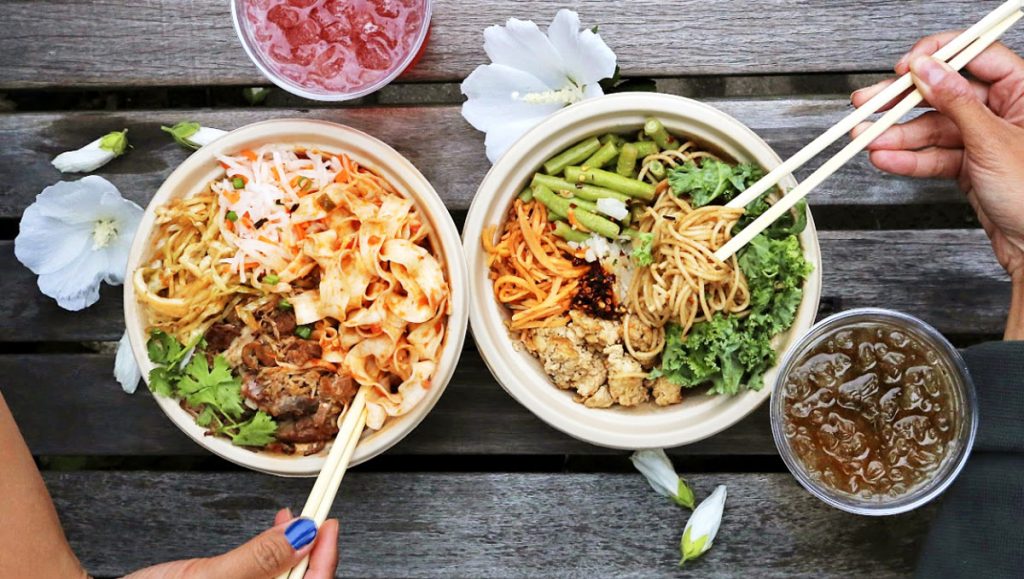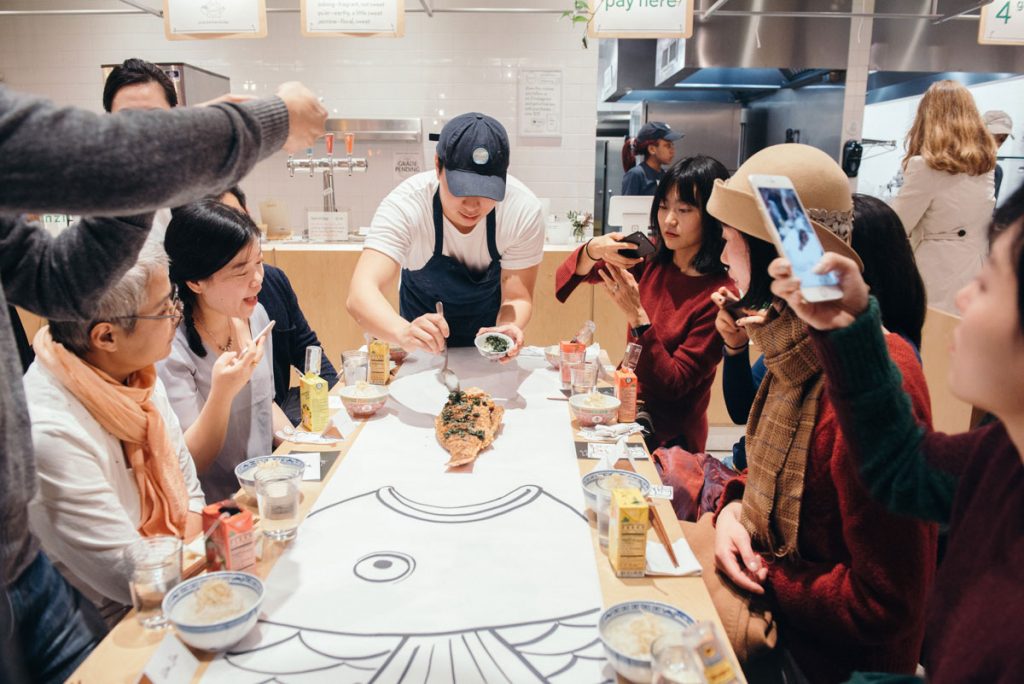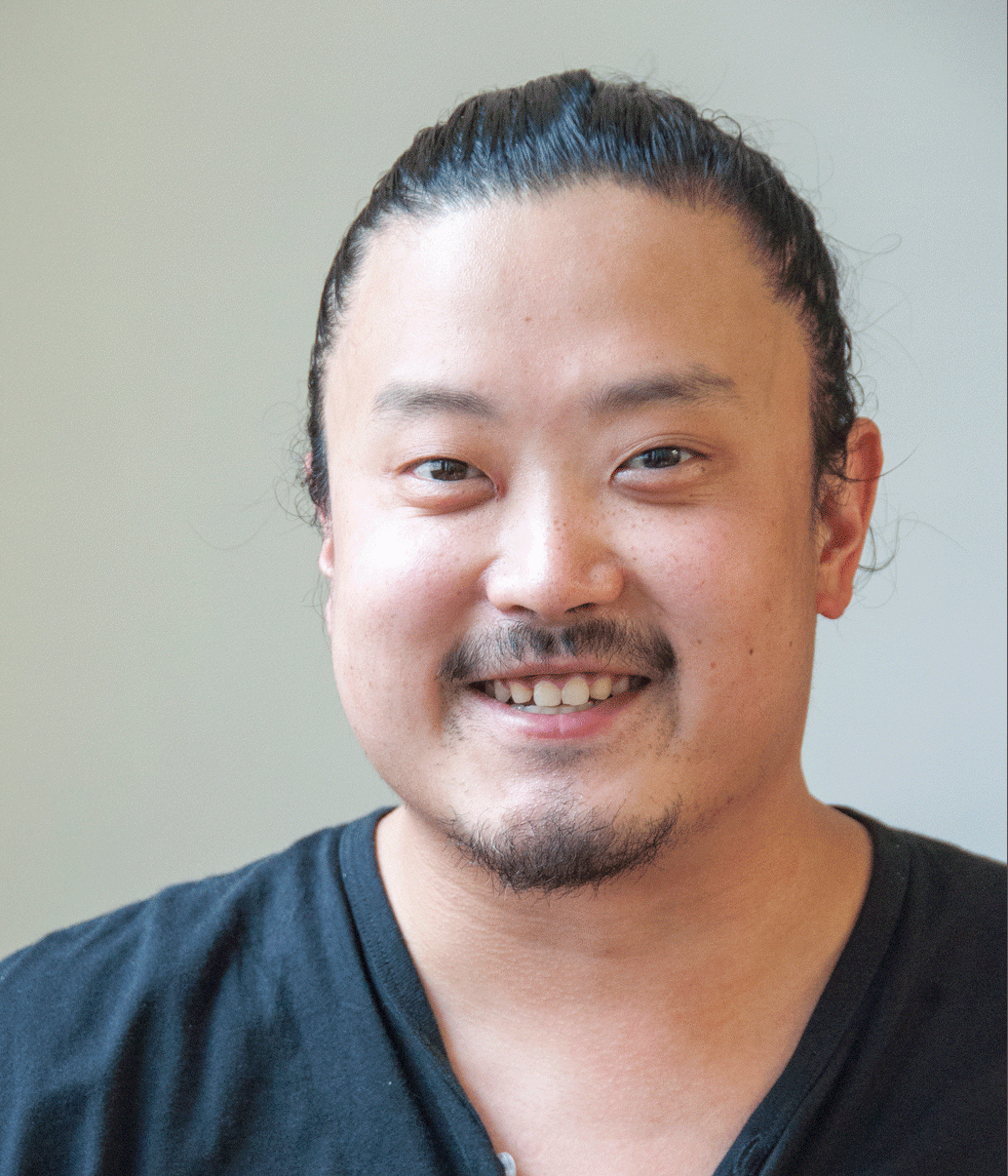Andrew Chu, ’10, MBA ’13, is energized by the lightning-fast pace of a restaurant startup. “If I went to a 9 to 5 desk job, I would be incredibly bored,” says Chu, director of operations for Junzi Kitchen. The restaurant, which was founded in New Haven in 2015 by a group of Yale University alumni, has already expanded to include several New York locations, all specializing in northern Chinese cuisine. Chu was among Junzi’s earliest team members — drawing on experience gained from his family’s restaurant background and two Southern business degrees. Both prepared him for a rewarding, demanding schedule. At Southern, he was a graduate intern, a resident hall adviser, an orientation ambassador, and treasurer of the Cultural Affairs Club and the Ski/Snowboard Club. “I was one of those kids,” says Chu, who also worked off campus — and served on what is now the Connecticut State Colleges and Universities Board of Trustees. In the following interview, he shares his thoughts on Southern and business.
How did you become involved with Junzi?
It was really through networking and living in New Haven for so long. I moved to New Haven when I was 17 — so I’ve been in the city for some time. Mutual friends were working with Junzi’s co-founders at the very beginning. One of my friends, Reed Immer, who is a New Haven local, signed on to do marketing. He introduced us, and my background fit. My upbringing was in Chinese restaurants. My family had a restaurant in Middletown, Conn., called Debbie Wong Restaurant. We also had a few in Massachusetts. They were banquet-style restaurants — most 65 – 70 seats — with the location in Middletown seating about 300 for weddings, Lion’s Club meetings, and other events. So it was more of an operation.
So it’s in your blood.
It’s kind of ironic. My dad will say to me: ‘You didn’t want to take over the restaurant when you were younger. Then you went, got all of this college education, and now you want to get back in the restaurant industry.’ But Junzi is very different from your traditional, neighborhood Chinese restaurant. I saw a great opportunity for growth and forward momentum.
What are your responsibilities with the restaurant?
I am one of the operations managers for the company. In 2015, there were only seven of us. With a recent hire, we are at 17 employees now, so we’ve grown considerably in three years. In the beginning, I oversaw store operations. But now I am happy to be transitioning into more of an HR [human resources] role, which I enjoy immensely. Working closely with people on communication, making sure policies are followed. And I still get to have my hand in a little bit of everything else.
You earned two business degrees at Southern. Did you always plan to major in business?
From high school on, I had a business track in mind. I was interested in marketing as an undergraduate. In terms of the MBA degree, I was given an amazing opportunity to become a graduate intern for Judicial Affairs [at Southern]. So I was earning my degree while gaining experience.

How did Southern help prepare you for your career?
Serving on the board of trustees for what was then the Connecticut State Universities system was instrumental — especially doing so while going through Southern’s business program and earning my MBA. I was able to take what I was learning in the classroom and apply it to a real-world setting. That experience definitely taught me to hold my own . . . to be able to walk into a room of senior business leaders and understand what they were talking about. I remember there being a $171 million budget just for Southern. So I gained an understanding of those type of numbers, and I was part of meetings and conferences where all different aspects of business were discussed. It was very exciting. [laughs] It was also very nerve-wrecking. But it gave me experience.
I also had side jobs while attending graduate school. I was a sales rep for a snow board company based out of Waterbury, Vt., and worked at a retail store out of Berlin, Conn. I like to stay busy.
Was there anyone at Southern who had a particularly strong influence?
The board of trustees was a huge influence.Then, without question, my graduate internship with Student Affairs — and all of the administrators I worked with [through the division]. Chris Piscitelli [assistant dean of students and director of student conduct], Denise Bentley-Drobish [director of student involvement], Sal Rizzo [director of new student and sophomore programs], and Eric Lacharity [interim associate director of student involvement] — all had such a major impact. A lot of it was them stressing the importance of getting involved and networking. That helped me exponentially get to where I am today.

At the very beginning, it could be discouraging: having six-day work weeks and 10-plus hour work days. Without question, you do have to work extended hours. But it helped build me into a better person. I’m more professional and more organized. I’ve learned so much from them. And, honestly, I live for this. If I went to a 9 to 5 desk job, I would be incredibly bored.
Looking forward, where do you see yourself 10 years from now?
I’d like to ride this out to see where it takes me. I spent a lot of my earlier years — in my 20s — figuring out what I actually wanted to do. I always had a focus on business — and once I found this [opportunity], it was really exciting, especially coming in close to the beginning. I think I was employee number three. I went from working with our chef, cooking in the owners’ apartment. We’d be there at 8 a.m. testing recipes — and the co-founders would be sleeping after staying up all night talking with investors in China. Now two stores are open. Our NYU location is about to open. [The store is slated to open this summer.] And we just locked in a new location on 41st Street between Bryant Park and Times Square. We are working on a new round of fundraising. . . . There are so many really exciting things happening – and I only see this company growing. In terms of opportunities, this is going to give me the greatest amount of growth and the greatest amount of challenge – both personally and professionally. To be able to come in at the ground level has been incredible. I want to invest as much time and effort to seeing Junzi grow. Nothing would be more satisfying to me than to one day say, ‘We have 100 units throughout the U.S. — if not internationally.’
Any advice for students?
I would tell them to get experience while they are earning their degrees. I know that it is incredibly challenging for a lot of young people to know what they want to do — to think, for example, I want to ultimately be the VP of human resources for a major company. That’s why I encourage people to start exploring different aspects of business while they are going to college. I thought I wanted to do marketing — and low and behold . . . I’m interested in HR.
It’s also very much about networking. Building relationships. Putting yourself out there, even if it makes you nervous. Networking is what helped me get to where I am today. It’s what’s helped the business [Junzi] expand.
We’ll end with something light. What’s your favorite dish at Junzi?
Junzi has a “build your own”-style menu. I really like the jaja noodle bowl. I build that with spring noodles, the jaja sauce, pork as the protein — all stir-fried with a little bit of cucumber and scallions to top it off. That’s my go-to combo.
Photos: Junzi 2018


